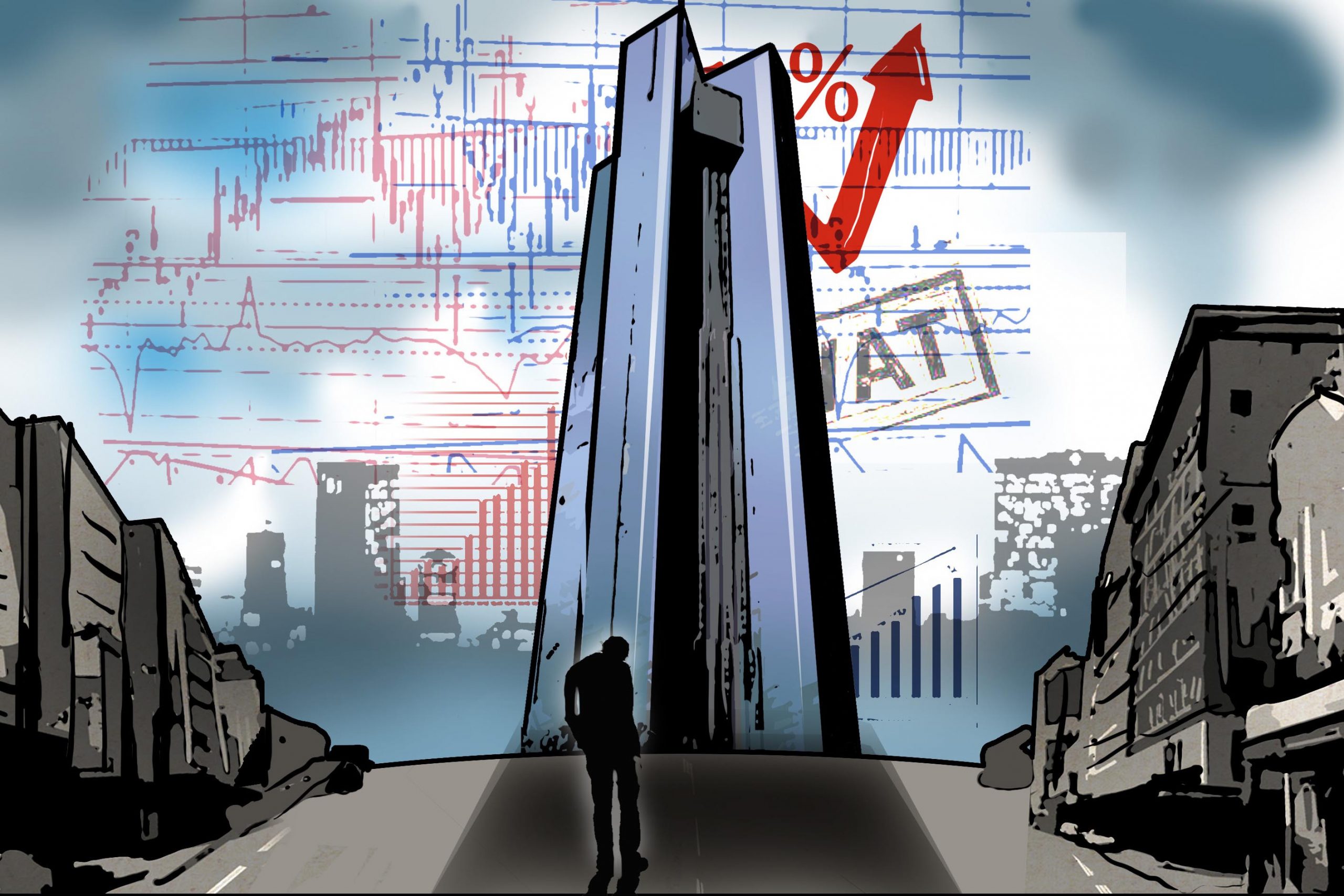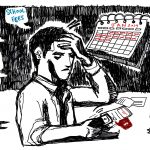Reserve Bank head is steering us to economic ruin
The Reserve Bank governor has been making extraordinarily bad interest rate decisions, but will he be held to account and replaced when his term ends in October?
Author:
4 February 2019

The amount of interest we pay on our debt is determined by the Reserve Bank. The bank’s Monetary Policy Committee (MPC) meets six times a year, when its six members (currently) decide whether to raise, lower or leave interest rates unchanged. If they are tied, the governor makes the final decision.
The state selects the members of the committee. Private investors have no say in their selection. For this reason, nationalisation is pointless. But who sits on the committee is exceptionally important. In November last year, the MPC were split three-three on the issue of whether to raise interest rates. Governor Lesetja Kganyago broke the tie and raised them.
This was a terrible decision. Its effect – as always with increases in interest rates – was to suck money out of the economy, just ahead of the festive season. Many of us would have noticed straight away as our home loan payments, car instalments and store card payments ratcheted up. Across the economy, money was automatically and immediately transferred away from the working poor, from corporations borrowing to invest and from households with a bond.
Related article:
The net effect of such an increase is tens of billions of rands, at least as much as the VAT hike. The latter stirred a lot of emotion, even if more online than on the streets. The effect of the VAT increase soon dissipated, but the rate hike has remained and continues eating away at us, month after month.
Unlike with the VAT rise, there were no outraged pundits or overwrought predictions of working-class revolt. Perhaps pundits don’t believe ordinary people understand the effect of changing interest rates. Perhaps they don’t understand it themselves.
Inversely proportional
Moreover, the VAT rate doesn’t reduce investment, whereas higher interest rates do. When rates increase, it becomes more attractive for businesses to leave their cash in the money markets rather than risk investing it in a new factory or facility. When rates increase, it becomes more difficult for housebuilders to get the loans they need. Because of its effect on household and company investment, the interest rate is the single most important variable in the economy. Raise it and growth drops, almost without fail.
For that reason, increasing rates while inflation is within its target range and the economy is slowing – never mind when it’s in a recession – almost never happens. Doing so is a great blunder, one of the causes for the Great Depression and, more recently, a trigger for the Euro crisis.
There are only two possible justifications for raising rates in a recession. One is that bank lending is out of control but financing useless activity, so lending must be slowed by making loans more expensive. If lending is normal but being spent on the wrong things, that’s also a problem, but not one that changing interest rates can solve.
The second reason is if inflation is self-fulfilling, with prices going up really quickly just because everyone thinks prices are going to go up. Then a sharp increase in interest rates can shock everyone out of that belief and the short-term decrease in growth will be worth it – but only if the prices that cause inflation are set in the local economy. For example, if everyone is trying to build houses at the same time, prices for building materials and construction labour soar, making everything that depends on them rise in price, too.
Irrelevance and open revolt
Ultimately, neither of these reasons has any relevance to South Africa. Bank loans are growing at the slowest pace in decades. Inflation expectations rose at the end of last year, but owing to the galloping oil price – an oil price set by the number of fracking rigs in Texas which has as much to do with the interest rate in South Africa as the price of eggs in China.
In fact, nothing that could respond to the South African interest rate was having any effect on inflation at all. Perversely, the rate hike may make inflation worse, because it will raise Eskom’s debt service costs and hence the tariffs it requests to cover these costs. Of course, the hawks on the MPC will then use those tariff increases to motivate more interest hikes.
It’s a little difficult to convey just how extraordinary all of this is. Interest rates are the most important policy decision in our economy. They’re vastly more important than the level of the rand, vastly more important than the VAT rate. And it’s a decision that six or seven people are allowed to make with no need to pass a law, and one that they make every two months. For years it is a decision that has been made with no plausible justification, imposing hardship on our economy and with at least half the people responsible for making the decision in open revolt against it.
In any other country in the world of our income level or above, a Reserve Bank that was raising rates in a recession for no observable reason, in which half the committee was voting against the governor, would be unthinkable. It would raise an outcry.
Since 1936, there has never, not once, been an instance of half of the US Reserve Bank’s monetary policy committee voting against the chair. Note that in the US, almost none of the committee members work for the chair. In South Africa, almost all do.
Why is there no outcry? Perhaps it is because much of the media is incapable of covering topics with substance over the soap opera of “the Zuma faction” versus “the good guys”. Perhaps it is because Kganyago knows his decisions are so bad, his rationale so weak, his performance so catastrophic that if the discussion ever stops being a farce he will be removed when his term ends.
Confidence, no confidence
President Cyril Ramaphosa said at last year’s World Economic Forum in Davos that he has “full confidence” in the governor. But half the committee Kganyago chairs, stocked with people who report to him, votes against him. He does not have the confidence of his own committee and he should not have the confidence of any of us.
Kganyago’s term ends in October. This is one appointment that will really matter this year – and it will probably go unremarked on or cast as a victory for “the good guys”. If so, it will be one more step along the path to permanent economic despair.

